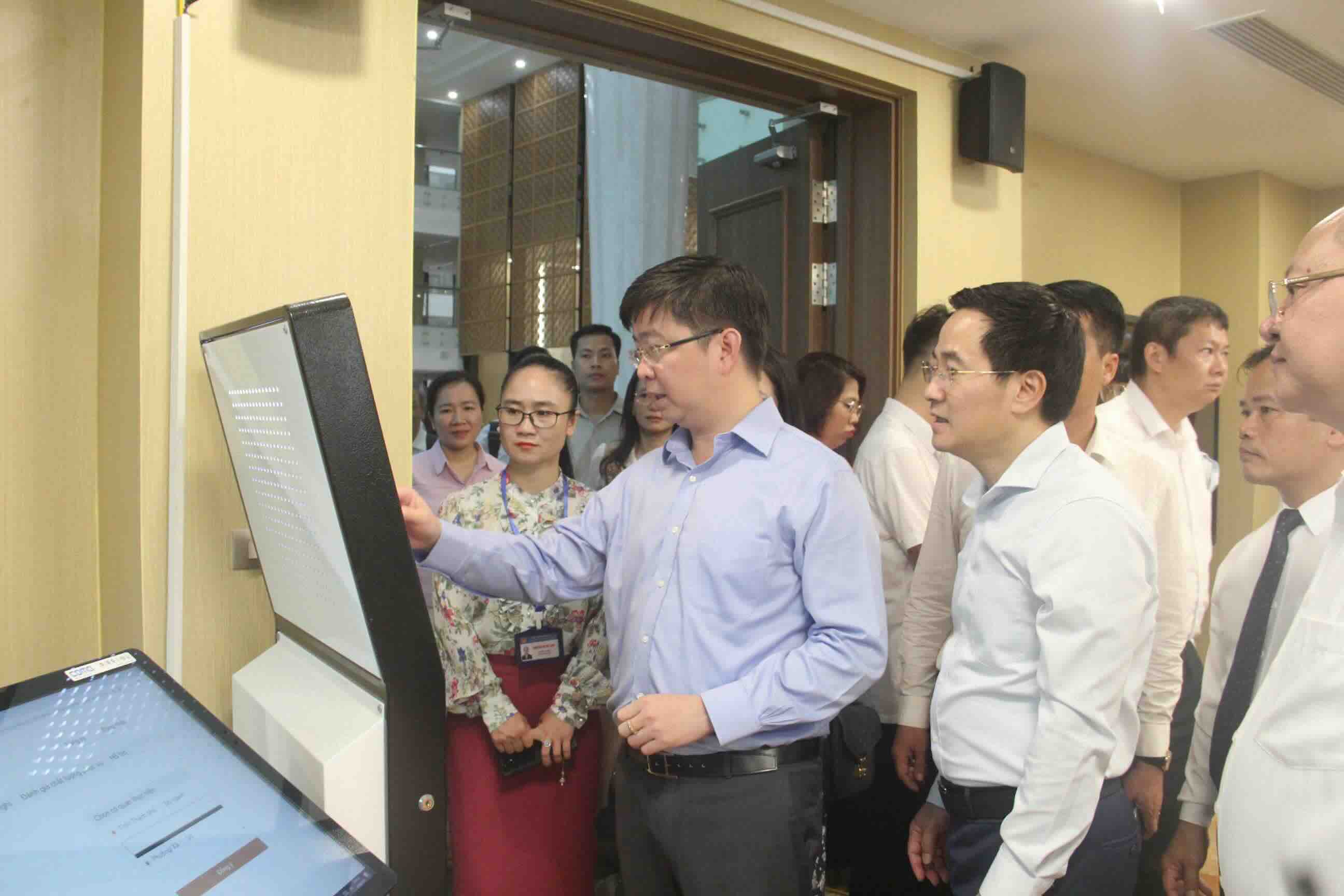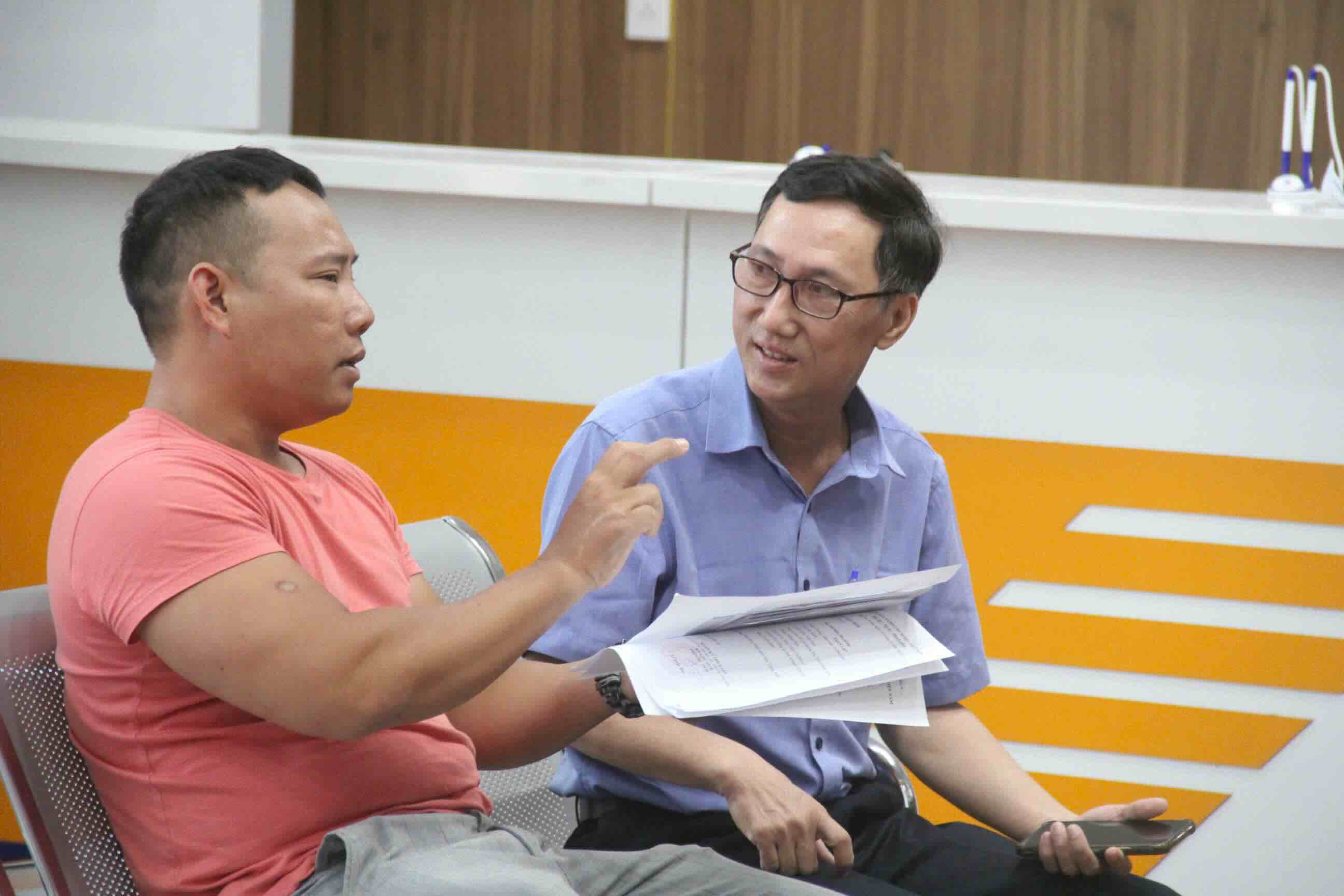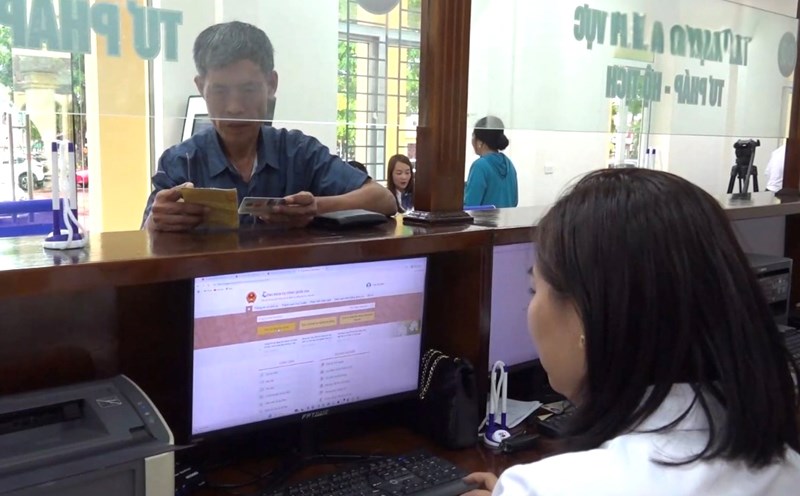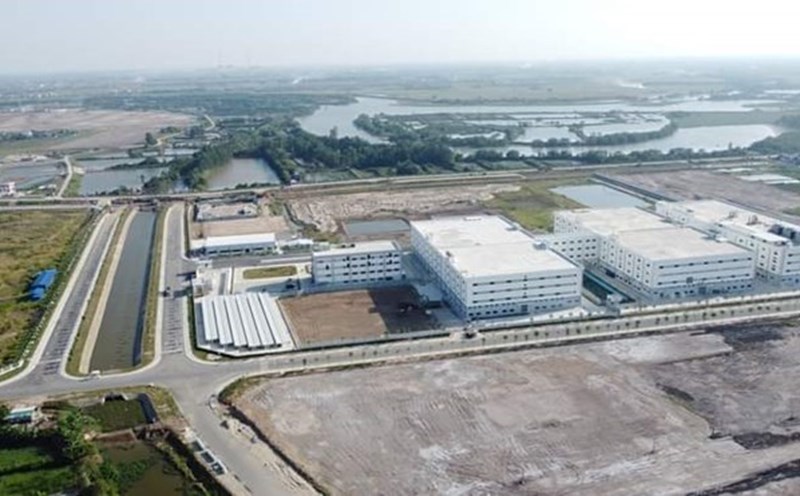
Many positive signals from practice
Speaking with Lao Dong, Mr. Ho Hong Hai - Deputy Director of the Legal Department, Ministry of Science and Technology (MONRE) said that many localities have shown the spirit of daring to think, daring to do, daring to take responsibility in decentralizing, delegating authority and implementing science and technology tasks at the grassroots level.
Most provinces and cities have completed connecting specialized data transmission networks to the commune level; the "one-stop electronic gate" software is synchronized and integrated with the National Public Service Portal. Some localities such as Lao Cai, Bac Giang, Ba Ria - Vung Tau have put data into the operating center, applying cloud computing with a file digitalization rate of over 90%.
Human resources for digital transformation are also gradually being increased. Many places have arranged full-time staff at the Public Administration Service Center, opening training courses on science and technology and digital skills. Some provinces boldly recruited or transferred IT-professional personnel to support newly merged communes and wards, gradually forming a team of "digital civil servants" at the grassroots level.
However, the implementation process still faces many difficulties. First of all, the technology infrastructure is not yet synchronous, especially in the communes after the merger. The connection of data from the National Public Service Portal to the provincial and municipal systems is still stuck; some old software and databases are redundant, causing disruption in processing documents.
In addition, the lack of high-quality human resources is a big problem. In many remote areas, there are no specialized IT staff or well-trained staff. Experience in technical fields such as measurement standards, telecommunications, intellectual property or nuclear radiation safety is still limited.
In addition, specific administrative procedures in the fields of land, energy, and resources cannot apply the " non-administrative boundary" model due to security requirements, making it difficult to process inter-regional records.
These problems are a major obstacle to the goal of building a digital government, digital citizens and a serving administration set by the Government.
Accompanying, creating and solving
The Deputy Director of the Legal Department (Ministry of Science and Technology) said that the Ministry of Science and Technology has established survey teams, working directly with localities to synthesize the current situation and propose a group of solutions to promote the two-level government model associated with digital transformation.
Accordingly, the Ministry will continue to review, amend and supplement the legal system, especially regulations on decentralization and delegation of authority in state management of science and technology; update specialized documents to suit the new organizational model. At the same time, the Ministry is implementing the development of a National Digital Architecture framework to unify connection standards, share data between levels and sectors, along with a mechanism for monitoring and evaluating the progress of digital transformation openly and transparently.

The Ministry of Science and Technology will also increase training and fostering digital skills for grassroots staff, from artificial intelligence, big data to information security in the direction of "realistic", linking the needs of each locality. At the same time, a Standing Group and a 24/7 online interaction group were established to receive, answer, and guide all proposals, ensuring information between the Central and the grassroots is always smooth.
From the survey results, the Ministry recommends that the Government have a budget support mechanism, prioritize human resource training, allocate staff and invest in IT infrastructure for the commune level - which directly serves the people. At the same time, promote the sharing and integration of data connections between ministries and branches; perfect the entire online public service mechanism, towards data-based personalization, according to Decision 1566/QD-TTg dated July 18, 2025 of the Prime Minister.
The Ministry also requested localities to urgently complete and effectively exploit national and specialized databases, considering this a foundation for modern governance and sustainable digital transformation.
According to the Ministry of Science and Technology, only when institutions, infrastructure and people move synchronously, will digital transformation at the grassroots level be truly successful. This is a step to concretize Conclusions 177 and 178 of the Politburo and the Secretariat on restructuring the apparatus, improving the effectiveness of state management in the new period.
With the spirit of drastic action and close coordination between the central and local governments, digital transformation is not only an administrative task, but has become a central driving force for socio-economic development, bringing science, technology and innovation to each level of government and each people.











